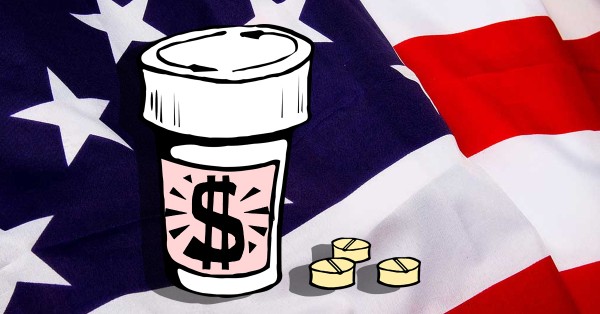
The Great OxyContin Epidemic
Surprisingly, drug use began to escalate in the past decade not on the streets, where anti-drug efforts are often concentrated, but in regulated physician offices. In the 1990’s the pharmaceutical company Purdue Pharma developed an new opiate based drug called Oxycontin. They also implemented a wide-spread marketing campaign that changed the way opiates were prescribed. They rolled out a series of seminars at fancy hotels, and convinced doctors that the drugs ‘time release’ element was a solution for patients suffering with chronic pain. Drug reps claimed that the time release spaced out the affects, therefore addiction was unlikely.
Americans Hooked on Heroin
Doctors began prescribing more opiate-based pain relievers for patients, some of these patients became seriously addicted. Patients would continue to take the pills long after their original ailment was healed because these pain relievers blocked the feelings of stress and anxiety. After these patients were cut off by their physicians or began to run out of money to pay for them, they turned to the streets for their fix. Here they could buy heroin, which achieved similar effects but at a lower cost. In many instances heroin was easier to purchase than prescription drugs, causing their usage to increase.
Compounding the problem is that drug manufacturers saw their profits rise. In response, they began manufacturing even more prescription painkillers, some up to 10 times more powerful than their first-generation predecessors.
For over 26 years, people from all over the world have chosen Waismann Method as their opioid detox provider.
We know the challenges you face and the importance of creating a unique and personal experience for you right from the start.Call for Detox Options 1-800-423-2482
The Government’s Response
State and federal governments have found themselves in a panic due to the overdose epidemic. They closed their eyes for a decade while the painkiller addiction epidemic was created in doctors’ offices. Then, the abuse reached the streets, heroin addictions increased and painkiller overdoses got out of hand. Once everyone started to talk about it, they began pouring money in to the same treatment methods and replacement drugs that didn’t work previously.
In response to a growing heroin addiction problem, the state of New Jersey is considering bills aimed at fighting heroin and prescription-drug abuse. Sen. Joseph Vitale, a supporter of the bills says, “Many users across the state first become addicted to prescription medication and then moved on the cheaper, stronger and more deadly option of heroin.” He says the bills are aimed at both educating the public on the dangers of heroin and prescription drugs as well as treating those already addicted. The bills would require colleges and universities to establish separate housing for addicted students, institute addiction treatment services for prisons and require physicians to discuss addiction risks of prescription drugs with patients.
Meanwhile officials in Massachusetts are facing their own battle against heroin and prescription pain addiction, specifically OxyContin, Oxycodone and Percocet. State records indicate that between 2003 and 2007, 3,200 people died from overdoses. There, they are considering bills that would prevent pills from being crushed, cut or melted, which drug abusers use to get a more euphoric high.
Treating the Cause, Not the Symptoms
While implementing recovery treatment programs for those who are addicted is certainly a necessity, many argue that it doesn’t go far enough in stopping this plague at its source. The current drug war must start by educating the public to bring awareness about the dangers of these drugs. In addition, professionals must be allowed to treat patients by assessing their emotional and social needs in addition to their physical ones. It is these former needs that often lead to long-term addiction. Policy makers cannot throw Americans Hooked on Heroin into cookie cutter drug treatment programs they will fail for most.
Sources
Enterprise News
NEW JERSEY STATE LEGISLATIVE UPDATE, July 2016





